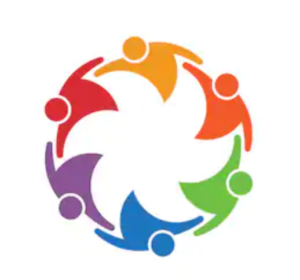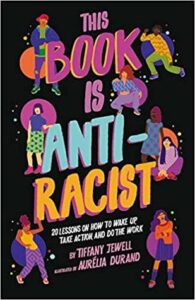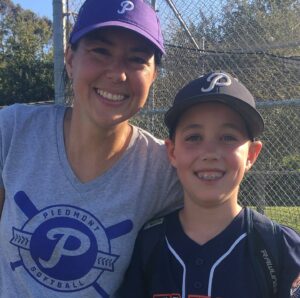Contributed by special guest writer, Anne Hawkins
 As we sat in the circle, I asked them to share about a holiday or tradition they celebrate in their family. They spoke about Thanksgiving, Christmas, and Hanukkah – as others in the circle nodded along. And finally, one spoke about a holiday when he dressed in red and ate noodles to represent long life. Where he danced in a line led by a big lion’s head. And when, he smiled, he “gets lots of red envelopes with money.” The others asked questions – they’d heard of this holiday in school and maybe even gone to an event – but they had never listened to someone who celebrated it describe it in such a meaningful way.
As we sat in the circle, I asked them to share about a holiday or tradition they celebrate in their family. They spoke about Thanksgiving, Christmas, and Hanukkah – as others in the circle nodded along. And finally, one spoke about a holiday when he dressed in red and ate noodles to represent long life. Where he danced in a line led by a big lion’s head. And when, he smiled, he “gets lots of red envelopes with money.” The others asked questions – they’d heard of this holiday in school and maybe even gone to an event – but they had never listened to someone who celebrated it describe it in such a meaningful way.
And when he was done, I asked everyone to close their eyes and think about the holidays others had just shared, and the ones they themselves had shared, and I asked them how they felt hearing and sharing their stories. They said they felt proud. They felt happy. They liked talking about times with their families that made them feel happy. They felt sad, missing family they normally celebrated with, but haven’t seen because of the coronavirus. They felt excited to learn more about their friends and their families – the things their families did that might not be like their own. They had allowed themselves to be vulnerable, and as a result, they felt connected.
As the parent of a nine-year-old boy, I think often about the kind of person I hope he will grow up to be. I hope he will be kind and fair. I hope he will be able to think about his feelings and manage them before his actions harm others. I hope he will understand the history of this country and his place and relative privilege in it. This summer, following the murder of George Floyd, and in the wake of the protests that followed, it became impossible for me to believe that my own children would grow up to be all the things I hope they will be without putting in a great deal of work.
And so I found myself speaking to close friends – also parents of nine-year-old boys – with an increasing sense of urgency. We all wanted to engage in deeper more difficult and uncomfortable conversations with our sons, but we didn’t always know how. We read books and some of us took our children to the protests. We believe they are good kids and are grateful that they share friendships with other good kids – but that didn’t seem like quite enough. Certainly many “good” kids grow up to perpetuate racism and violence. And so my son and I invited five other boys to join us in our backyard for a discussion circle. And, as I always do, I found a book to help me out.
 Tiffany Jewell’s This Book is Anti-Racist asks the questions and provides the background to generate critical discussions about identity, racism, and how to do the work to be anti-racist. I used this book as a jumping off point – to get these boys thinking about their own identities, how they see themselves and how the world sees them. And while they may not have a comprehensive understanding of the legal and social systems that have gotten us to this point, they certainly understand the ideas of fundamental fairness and what it means to feel left out or mistreated. They also know what it means to be treated better than others because of certain talents or immutable attributes and recognize moments where they have used that treatment to their own advantage.
Tiffany Jewell’s This Book is Anti-Racist asks the questions and provides the background to generate critical discussions about identity, racism, and how to do the work to be anti-racist. I used this book as a jumping off point – to get these boys thinking about their own identities, how they see themselves and how the world sees them. And while they may not have a comprehensive understanding of the legal and social systems that have gotten us to this point, they certainly understand the ideas of fundamental fairness and what it means to feel left out or mistreated. They also know what it means to be treated better than others because of certain talents or immutable attributes and recognize moments where they have used that treatment to their own advantage.
With each circle we have leaned forward, and sometimes we have had to step back. We have talked about gratitude and what it means to set goals and work hard toward them. We have explored the difference between dignity and respect and why that matters. We have talked about celebrating our own backgrounds, and the boys have done research and presented on traditions they had never previously heard about. They bring up stories they have heard in the news. They wonder together why things happen and how we might prevent such things in the future. They see that solutions are more than just “being nice” or believing that all people are created equal.
For so long I have just worried and asked the questions in my head. How can I be doing more to better educate myself and my children? How do we understand history to improve the future? How do I reconcile my own feelings about the discrimination against our own Asian/Asian American communities with our need to be an ally to Black and Brown communities? I think about the boy describing his celebration of Lunar New Year and why that matters. In this life, we come together often because we share some common ground. But, we grow and learn because we value the sharing and celebration of our differences.
Through this circle, these boys have shown me that I certainly don’t have all the answers, but that we will engage in the process of learning and growing together. A nine-year-old child holds a lot of power – to act in ways that promote equality and inclusion in their own circles, as well as to hold their parents accountable to do the same.
 BIO: Anne Hawkins is the mother of three elementary-aged children and a criminal defense attorney in the San Francisco Bay Area. When she isn’t leading discussion circles for nine-year-old boys, she can be found reading or pacing on the sidelines of her children’s baseball and soccer games.
BIO: Anne Hawkins is the mother of three elementary-aged children and a criminal defense attorney in the San Francisco Bay Area. When she isn’t leading discussion circles for nine-year-old boys, she can be found reading or pacing on the sidelines of her children’s baseball and soccer games.
